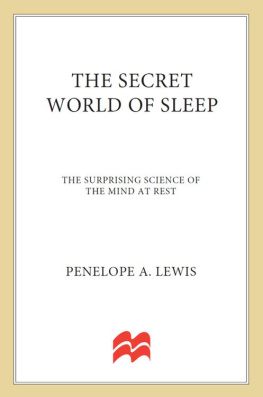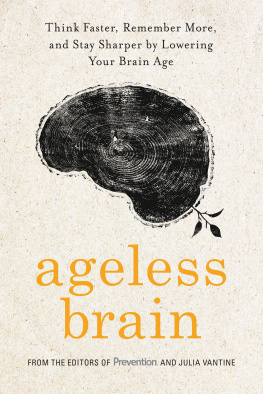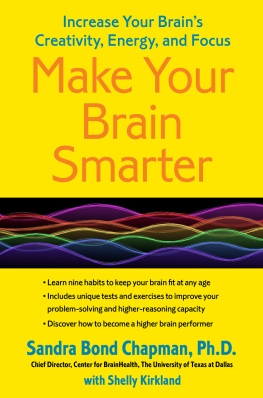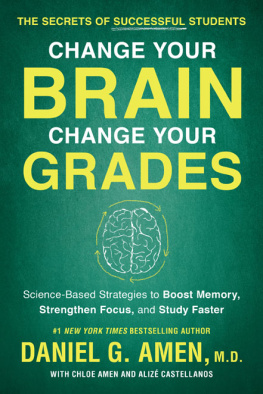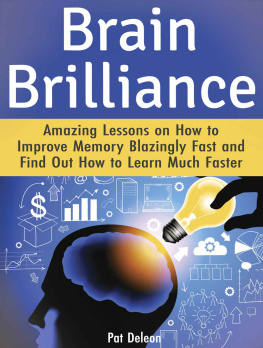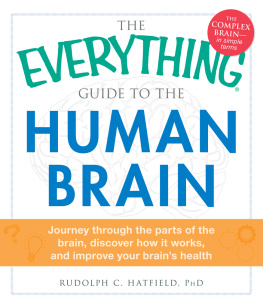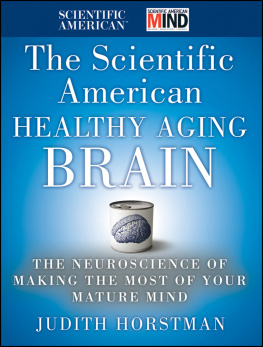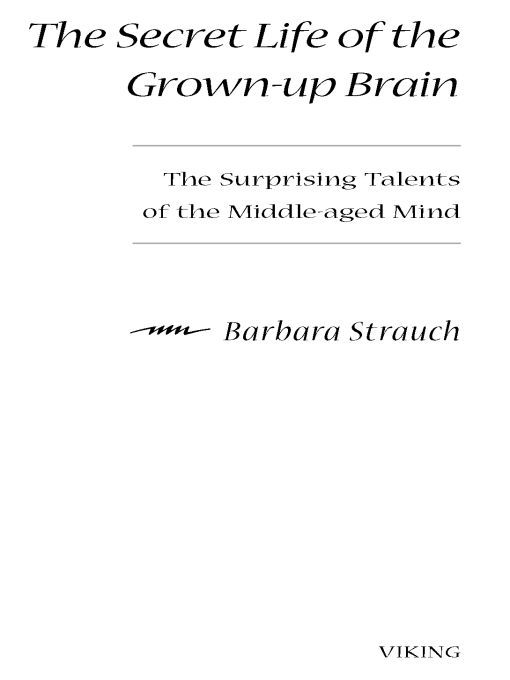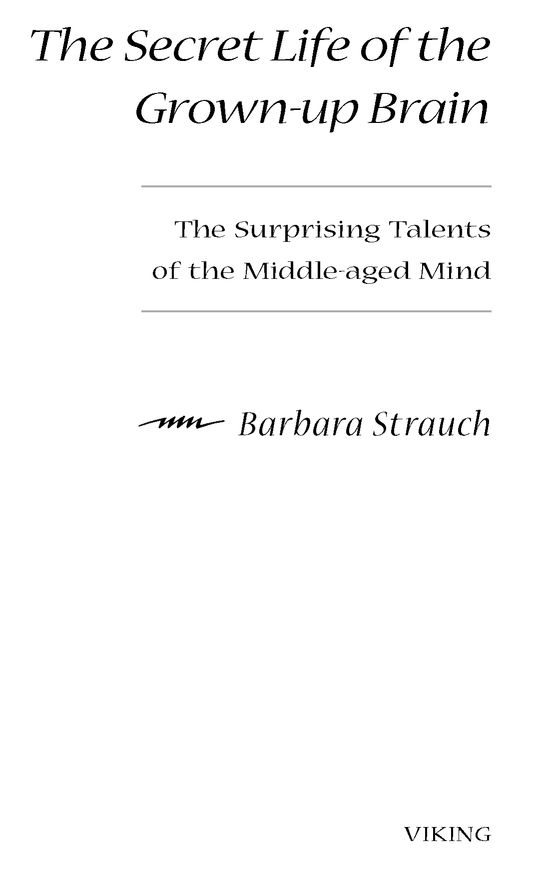Table of Contents
ALSO BY BARBARA STRAUCH
The Primal Teen: What the New Discoveries about the Teenage Brain Tell Us about Our Kids
To my family
Introduction
The Changing Landscape of Middle Age
For most of human history, middle age has been largely ignored. Birth, youth, old age, death have all been given their due. But middle age has not only been neglected, its not even been considered a distinct entity.
For most of human history, of course, such neglect made perfect sense. Lives were brutal and brief; there wasnt time for a middle. By the time of the Greeks, there was a reverence for maturity; Greek citizens could not become jury members until age fifty, for instance. But a Greek middle age was not even close to our current version. Not that many Greeks made it that far, for one thingthe average life expectancy in ancient Greece was thirty years old. For those lucky souls who lived longer, it was more like reaching a high peak, taking a sniff of the bracing mountain air, and then quickly descending into the valley of old age.
Now, of course, all that has changed. With human life spans stretching outthe average life span in the developed world just a century ago was about forty-seven years and is now about seventy-eightwe have a long expanse of time in the middle when were no longer chasing toddlers and not yet rolling down corridors in wheelchairs. With that shift, middle age has come into its own. Books have been written, movies made, studies launched.
But even with this newfound attention, one aspect of middle age has remained neglectedour brains. Even as science began to pay attention to what was happening to our bodies and our lives in the middle years, it did not think about what was taking place inside our heads. The prevailing view was that a brain during midlife was, if anything, simply a young brain slowly closing down.
Now thats changed, too. With new tools such as brain scanners, genetic analysis, and more sophisticated long-term studies, the middle-aged brain is finally getting its due. Much of the new attention, to be honest, is driven by fear. Many of usand many scientists themselveshave watched parents suffer the devastations of dementia. Were frightened.
A few years ago, after I wrote a book on the teenage brain, I would sometimes give talks for juvenile justice or school groups. After a speech, I was usually driven to the airport by the person who had arranged the event. More often than not, that person, like me, was middle-aged, and as we drove along, he or she would say something along the lines of: You know, you should write a book about my brain; my brain suddenly is horrible, I cant remember a thing. I forget where Im going or why. And the names, the names are awful. Its scary.
I would smile and nod in agreement, thinking of my own middle-aged brain. Where do all those names go? Do they float out of our heads and into the trees? Are they up there bouncing around the interstellar clouds, gleefully watching us fumble about? And is this the start of something truly awful?
Not long ago, the writer Nora Ephron, who at sixty-seven was at the outer edge of whats considered the modern middle age, wrote an essay about all this called Who Are You?
I know you, she wrote. I know you well. Its true. I always have a little trouble with your name, but I do know your name. I just dont know it at this moment. Were at a big party. Weve kissed hello.... Youve been to my house for dinner. I tried to read your last book.... I am becoming desperate. Its something like Larry. Is it Larry? No its not. Jerry? No its not... Im losing my mind....
Originally, I shared such concerns. My aim was to find out where the names go, the Larrys, the Jerrys, the who are yous. From a neuroscience point of view, I wanted to know if those names were hidden somewhere, a brain equivalent to the secret hole in the universe where all the library cards, favorite pens, and glasses disappear. I wanted to find out what was going wrong in middle age, and what it meant.
After all, its more than just memory and names. Our brains at midlife have other issues as well. Sometimes when Im driving now, I look up and realize that Ive not been paying the slightest attention to the road but instead have been thinking of something else entirely, like how Im going to brine the turkey for Thanksgiving. The smallest interruption can be distracting, my brain flitting away from what it was doing and off into another land. Just the other day, while packing for a trip, I spent five frustrating minutes looking for my toothbrush to put in my suitcase only to find that I had, just minutes before, already put my toothbrush in my suitcase. After Id packed it, Id gotten distracted looking for a sweater and, whoosh, all thoughts of toothbrush-already-in-suitcase were swept out of my head.
It would be nice to say that this kind of thing happens rarely. In fact, it happens all the time. And while other ages have their troubles, tooone would hardly call your average teenager a model of mind-fulness, for instancethe changes in my brain now seem to have a qualitative difference. In areas of memory and focus, in particular, a tipping point has been reacheda point at which I now find myself in a kind of automatic way relying on my twenty-something daughters not only to remind me of things I fear Ill forget but also to bring my mind back to where it started. What was I talking about? At middle age, we know were different. We know our brains are different. What has happened? Where have our minds gone? From a neuroscience perspective, are we allbit by bitlosing our minds?
In the end, I spent considerable time tracking down the lost names, and I will tell you where they go andaccording to current thought anyhowwhat it all means. I also dug into the latest science on our tendency to lose our train of thought as well. Over the past few years, scientists have begun to examine this mindlessness, finding where, in fact, our middle-aged brains go when they wander off track.
Along the way, though, this book took an about-face. Its not that I forgot what I was writing about. But when I looked deeper into the latest science of the modern middle-aged brain, I found not bad news but good.
As it turns out, the brain in middle age has another story to tell thats quite the opposite of the one Id expected. This is the middle-aged brain that weve all, in a sense, mislaid. As we bumble through our lives, its easier to notice the bad things.
But as science has begun to home in on what exactly is happening, a new image of the middle-aged brain has emerged. And that is this: Our middle-aged brains are surprisingly competent and surprisingly talented. Were smarter, calmer, happier, and, as one scientist, herself in middle age, put it: We just know stuff. And its not just a matter of us piling facts into our brains as we go along. Our brains, as they reach midlife, actually begin to reorganizeand start to act and think differently.
In the end, the brain I had not expected to find was the brain I wanted to write about: this middle-aged brain, which just as its forgetting what it had for breakfast can still go to work and run a multinational bank or school or city, a whole country even, then return home to deal with cars that talk, teenagers who dont, sub-prime mortgage meltdowns, neighbors, parents.



